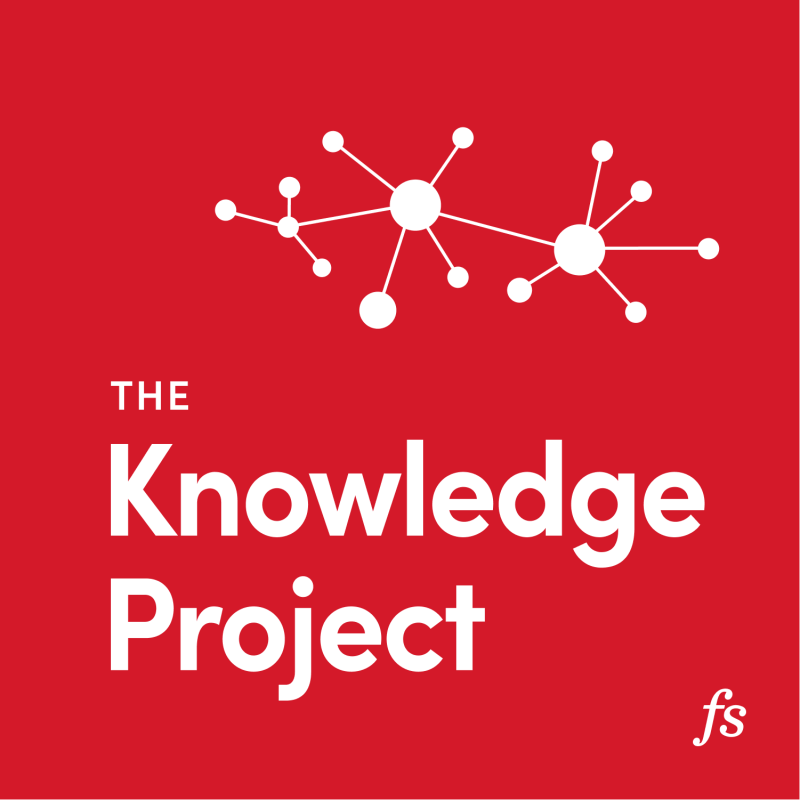Dr. Laura Markham explains the three keys to successful parenting, how to model emotions and conflict resolution properly, and the coveted recipe for raising happy, resilient kids.
Listen on: Apple Podcasts | Spotify | Transcript
On an earlier episode of The Knowledge Project, I spoke with parenting expert Barbara Coloroso. Many readers have since requested more resources on becoming a better parent, so I’m thrilled to welcome today’s guest.
Dr. Laura Markham (@DrLauraMarkham) is a three-time best-selling author. Her most recent book, Peaceful Parenting, is full of brilliant insights into parenting, including discipline, effective communication, fostering self-reliance and confidence in children, and so much more.
In this gem-packed conversation, Laura explains how to use her Peaceful Parenting method to forge lifelong connections of love and trust with our children, the importance of observable modeling, and nature’s surprising role in effective parenting.
Even if you don’t have children, what Laura shares about self-regulation and “befriending emotion” is too good to miss. You’ll want to listen to this episode more than once.
Here are a few highlights from our conversation:
We’re all learning and growing, and if you stumbled onto some places where you lost your temper repeatedly, notice what’s going on. Bring your conscious attention to it. I think of this as sort of going into the dark basements of our psyches with our flashlight, and the flashlight is our conscious attention. When we shine conscious awareness on anything, it loses the power of the unconscious fear that’s otherwise attached to it.
Our ability to self-regulate might have the most impact on who our child turns out to be than anything else we do
We’re not going to be perfect, but our goal can be to function from a place that is not about who’s right and wrong but is more about the level of the heart, where we’re the leader, and we’re leading from our heart, and what matters it compassion towards our child, but also protecting and supporting our child to be their best self.
How we relate to them and how we make all of the decisions in daily life will shape who they are in very visceral ways that they can’t articulate, but also who they are in terms of how they show up in the world for the rest of their lives based on their values — who they think of themselves as being.
All kids need the same thing from their parents. They all need to know that they are acceptable exactly as they are with all of their inconvenient feelings, number one. Number two, that no matter what, their parent will be there to help them, to take care of them, to protect them, to give them food and shelter and emotional love, physical love.
One of the most important things we can give our children, is a sense of being valued, delighted in, just for who they are. When children feel that we adore them, when we delight in who they are, they feel of value. It isn’t about having to perform in a certain way. It isn’t about having to produce certain things, like get an A or be a considerate kid. Of course, we want them to do well in school, and we want them to be considerate, but our love for them does not depend on that.
Not all humans are, but most of us were not raised to be able to befriend our emotions, and at best, we see them as a necessary inconvenience. The truth is emotions are useful. Emotions are indicators of something, an indicator of something that matters to us or someplace we need to grow or someplace we need to change or something we want to change in the world around us that’s not working for us.
Our love for our children is unconditional. It comes before anything they actually do, and the paradox here is that when we give children unconditional love, they do much better. They do better in school. They do better with other people because they’re not coming from a place of feeling not quite loved and valued.
What happens there is that you’re putting a little brick in a wall between you and your partner, a wall of unaired, unexplored, and unworked out grievances, where you basically think your partner was acting like a jerk … that the brick is a judgment that it’s all their fault, and next time you have an altercation, it will be worse because you didn’t actually work this one out.
They will grow resilience if we allow them to have those negative feelings, and they learn the world doesn’t end — that they can do these things and come out fine in the end, and everything will be okay, right? If we stop our children from growing resilience, it doesn’t help them at all. Then, we have unknowingly, unwittingly raised a child who doesn’t have the grit to go after what they want in life and get it. That’s a recipe for unhappiness.

